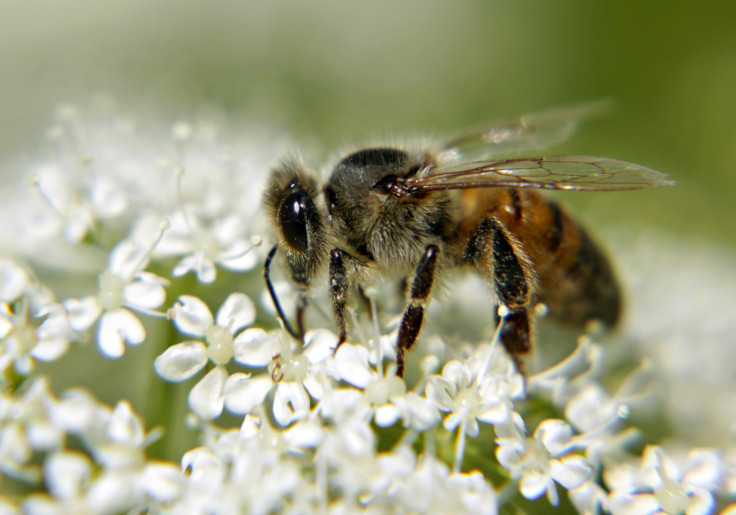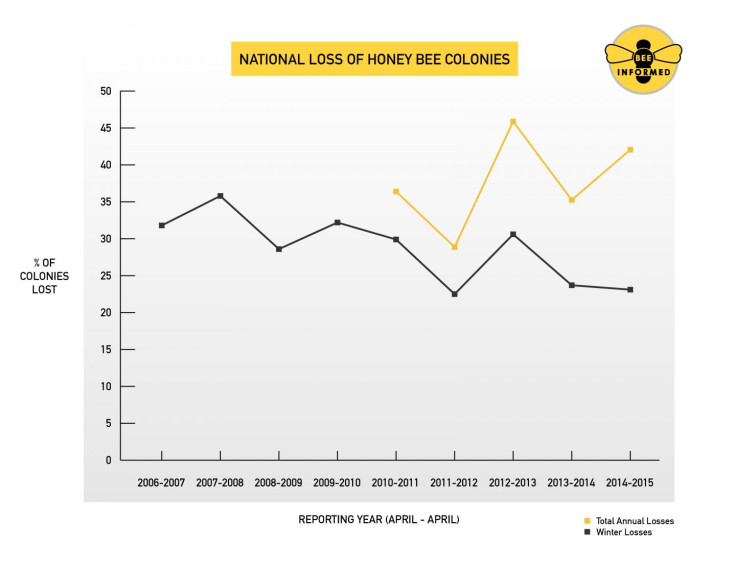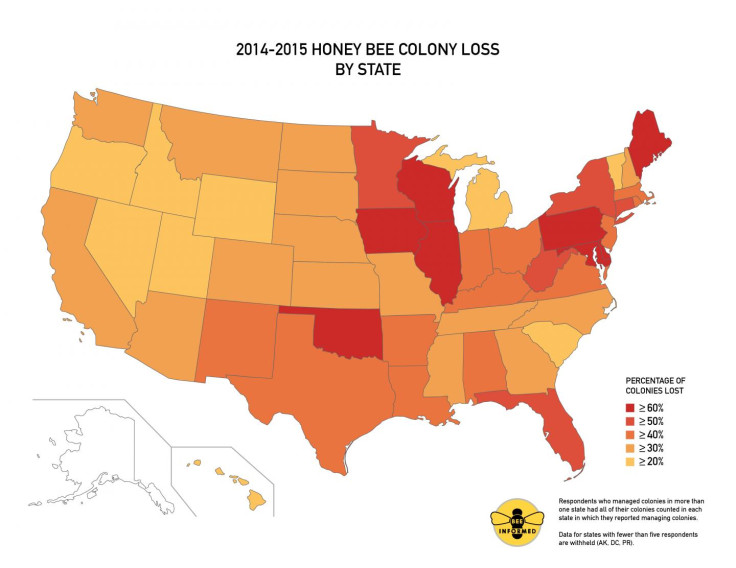US Honey bee population ravaged in past year as 'troubling' survey reveals parasite battle

Over 40% of the honey bees in the US were lost over the last year, researchers have announced.
Beekeepers across the country lost 42.1% of their colonies between April 2014 and April 2015, with the high rate of summer and winter losses recorded by Bee Informed Partnership in collaboration with the Apiary Inspectors of America.
The survey found that while winter losses were less severe, summer losses were far more significant than the previous year, leading to greater total annual losses. In fact, summer losses outstripped winter losses for the first time in five years.
The University of Maryland's Dennis van Engelsdorp, project director for the Bee Informed Partnership, said: "We traditionally thought of winter losses as a more important indicator of health, because surviving the cold winter months is a crucial test for any bee colony. But we now know that summer loss rates are significant too.
"This is especially so for commercial beekeepers, who are now losing more colonies in the summertime compared to the winter. Years ago, this was unheard of."

The survey included over 6,000 beekeepers, making up about 15% of the total managed honey bee colonies in the US.
Researchers found that beekeepers who manage fewer than 50 colonies were hit particularly hard by the varroa mite – a lethal parasite that is easily spread between colonies. Among the commercial beekeepers, the reason for the losses are unclear.
"Backyard beekeepers were more prone to heavy mite infestations, but we believe that is because a majority of them are not taking appropriate steps to control mites," van Engelsdorp said.
"Commercial keepers were particularly prone to summer losses. But they typically take more aggressive action against varroa mites, so there must be other factors at play."

Findings are part of a larger research project to understand why honey bee colonies are struggling – colony loss leads to economic declines through financial loss and shortages of crops that depend on bees as pollinators – the total value of honey bee pollination is between $10bn and $15bn (£6.3 and £9.5bn) every year.
Jeffery Pettis, a senior entomologist at US Department of Agriculture, said: "Such high colony losses in the summer and year-round remain very troubling. If beekeepers are going to meet the growing demand for pollination services, researchers need to find better answers to the host of stresses that lead to both winter and summer colony losses."
© Copyright IBTimes 2025. All rights reserved.






















